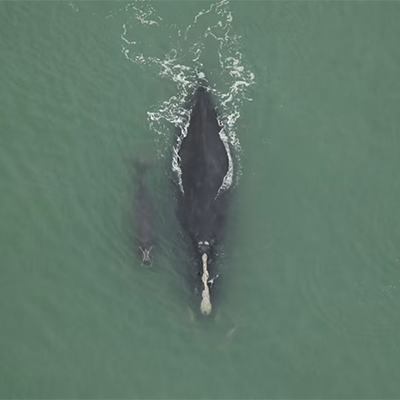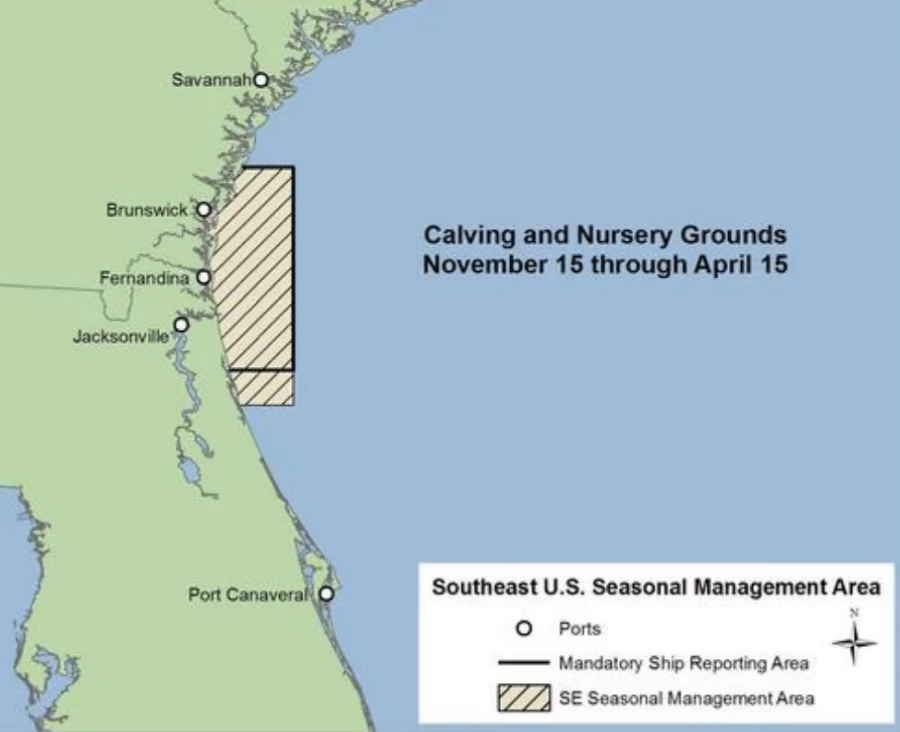Please Click Here for Original Article | Originally published 1/26/2023
Proposed speed rule to slow smaller vessels on hold

National Marine Fisheries Service rejected an emergency petition from conservation groups to enforce stricter vessel speed rules to protect North Atlantic right whales from being struck and killed by vessels along the east coast.
The petition argued that the agency was not fulfilling its legal obligation to save the species from extinction and wanted immediate speed rules to slow down boats greater than 35 feet in calving areas.
The emergency rule was proposed to reduce incidents like the 2021 St. Augustine boat collision that killed a right whale calf.
Part of the calving grounds includes the area offshore Northeast Florida and Georgia where the species is down to about 70 reproductive females.

Conservation groups urged for a vessel speed rule to protect what is believed to be 340 remaining right whales.
NOAA research shows fewer whales are injured when vessel speed decreases.
The proposed new rule would require recreational and commercial vessels 35 feet or larger to slow down to a speed of 10 knots. This is a change from the current rule, which only applies to vessels 65 feet or larger.
It would also expand the areas where the speed restrictions apply to include most of the East Coast and extend the duration of the restrictions to up to seven months of the year.
Fishing charter companies and the local fishing community have argued against the proposed 10-knot rule change.
The entire local fishing grounds frequented by recreational and commercial fishermen would come under the 10-knot rule. Operating a vessel at a maximum of 10 knots would add several hours to a typical charter trip to the Gulf Stream.
The National Marine Fisheries Service said it denied the emergency speed rule because it does not have the time and resources to effectively implement the emergency regulations.
As it stands, over 70% of vessels fail to comply with current speed restrictions for vessels over 65 feet in length in the calving and nursery grounds from Georgia to Florida according to Oceana.
The agency has yet to finalize the pending proposal but the recent stopgap denial doesn’t mean protection won’t expand in the future. A decision on the longer-term rule change is still being explored with a congressional deadline slated for 2028.





